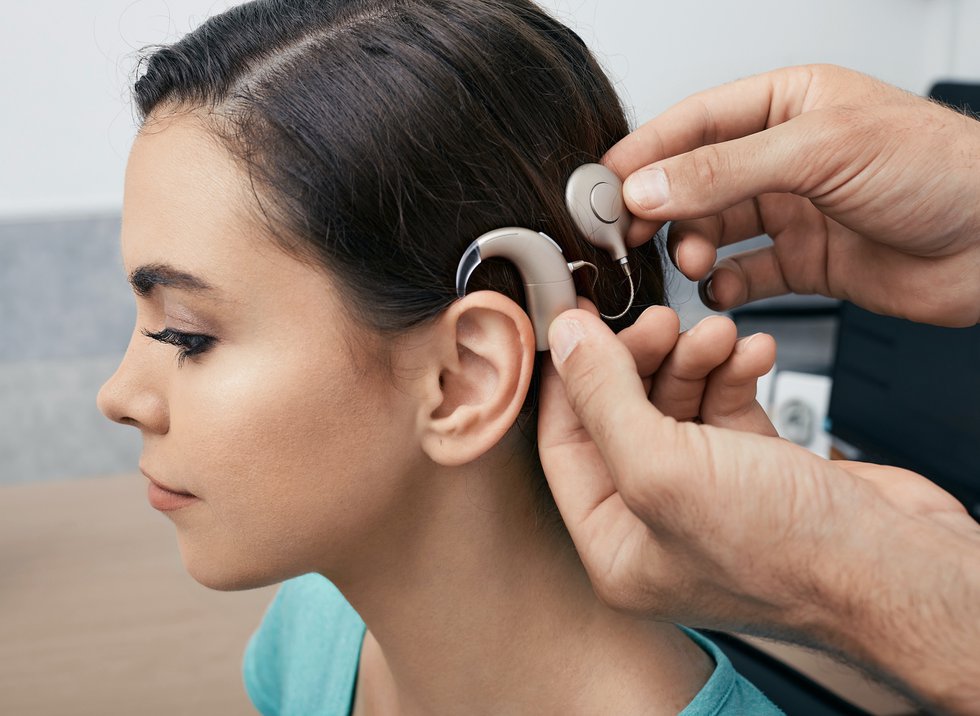Ear Implant Surgery Indore
Services
Quick Enquiry
Ear Implant Surgery in Indore

Hearing loss can deeply affect how we connect with the world. Thankfully, medical advancements in ear implant surgery now offer effective solutions for various types of hearing impairment. If you’re exploring options for ear implant surgery in Indore, Dr. Anil Gwaliorkar — one of the top rated ear implant surgery experts in the Indore— brings over two decades of ENT expertise and a patient-first approach to every case.
What Is Ear Implant Surgery?
Ear implant surgery involves placing an electronic or mechanical device inside or behind the ear to improve hearing. It is typically recommended for individuals who don’t benefit much from traditional hearing aids. These surgeries are particularly useful for those with severe sensorineural hearing loss, mixed hearing loss, or conductive hearing loss.
There are several types of ear implants, depending on the nature of the hearing loss:
- Cochlear Implants – These devices bypass damaged parts of the inner ear and directly stimulate the auditory nerve. They are often used in cases of profound sensorineural hearing loss.
- Bone Anchored Hearing Aids (BAHA) – These implants use bone conduction to transmit sound, ideal for patients with conductive hearing loss or single-sided deafness.
- Middle Ear Implants – These devices work by amplifying vibrations of the middle ear bones to assist in hearing and are usually recommended when external hearing aids aren’t effective or suitable.
When Is Ear Implant Surgery Recommended?
You might be a candidate for ear implant surgery if:
- You experience severe to profound hearing loss in one or both ears
- Hearing aids no longer provide enough benefit
- You have chronic ear infections or malformations of the ear canal
- You’ve been diagnosed with auditory nerve damage that still allows cochlear stimulation
A vestibular implant is a device that is surgically implanted into the inner ear to help restore balance in individuals with severe vestibular dysfunction.
The Procedure: What to Expect
Ear implant surgery is performed under general anesthesia and typically lasts 1–3 hours. Here’s a general overview:
- A small incision is made behind the ear
- The implant is carefully inserted, whether it’s a cochlear device, BAHA, or middle ear implant
- The site is closed and a bandage applied
- Most patients return home the same day, depending on the case
The device is activated a few weeks later, once the surgical site has healed.
Recovery and Life After Surgery
- Initial Healing: Patients may experience mild discomfort, dizziness, or temporary numbness around the surgical site.
- Device Activation: Usually occurs 2–4 weeks post-surgery, followed by aural rehabilitation to get used to the new sounds.
- Long-term Results: Most patients report significantly improved hearing ability and better quality of life, especially in social and work environments.
Why Choose Dr. Anil Gwaliorkar for Ear Implant Surgery in Indore?
With over 20 years of ENT surgical experience, Dr. Anil Gwaliorkar offers not only advanced surgical skill but also an empathetic understanding of what hearing loss means to a patient’s daily life. His approach combines precision diagnostics, evidence-based treatments, and personalized care that’s never rushed.
FAQs
Most ear implants, like cochlear implants, are designed to last a lifetime. External components may need updates over time.
The procedure is done under anesthesia. Some post-surgery discomfort is normal and manageable with medication.
Implanted parts are safe under the skin, but the external processors must be removed before water exposure.
It may take weeks or months of rehabilitation to interpret the new sounds, but many patients regain functional hearing.
Yes, in fact, cochlear implants are often performed on young children to support early speech and language development.
Costs vary depending on the implant type and required care. A consultation with Dr. Gwaliorkar’s team can provide clarity.
Most people resume normal activities within a week, though full adaptation to the implant takes time.
Quick Enquiry
